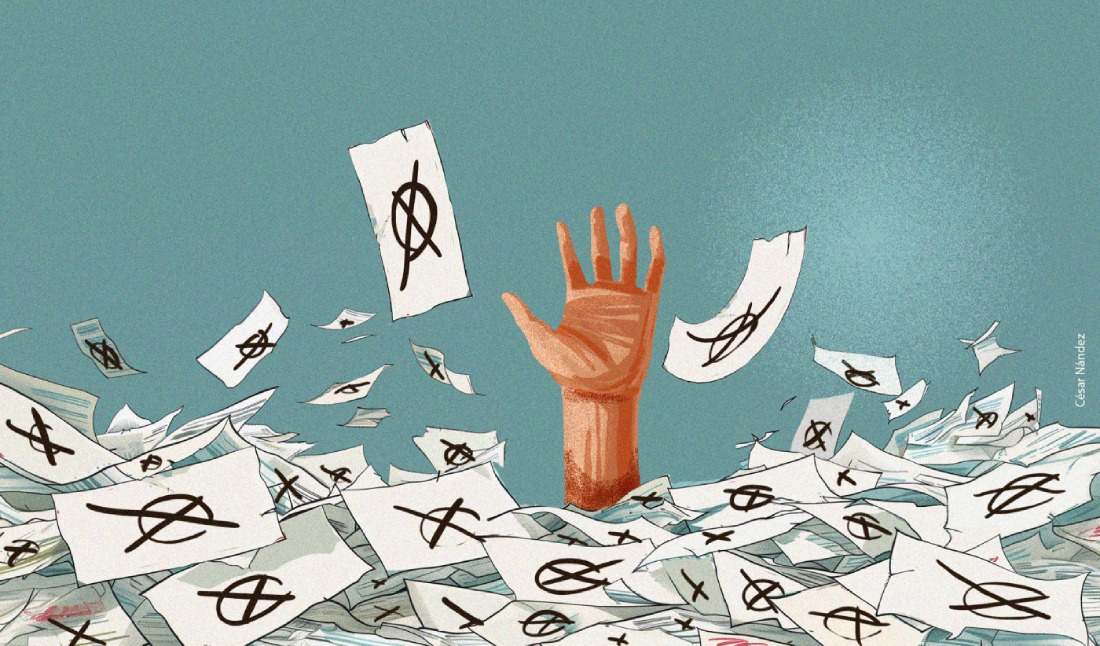Democracy, conceived as an end in itself, has faced increasing challenges in maintaining its legitimacy and public support around the world. As citizens’ expectations rise and demands for concrete results in areas such as security, the economy, education and health become more urgent, support for democracy fades when tangible results are not seen. Even so, instead of taking action, opinions are often underestimated or ridiculed as mere perceptions, far from reality. To the extent that a social collective or a sector of the population firmly believes in something, based on their own experience or that of third parties, perception will be reality.
In Latin America, there are changes in perceptions; the figures are revealing. In Peru, while 45% of the population agrees that democracy is the best system to govern (despite its flaws), 31% disagree. These statistics place Peru first in the region and second in the ranking of countries with the least confidence in democracy, according to a recent GIA survey of 43 nations. On the other hand, even above the world average (59%), Mexico would be the Latin country with the greatest support for democracy despite the problems it may present (67%).
This occurs in a context in which many people do not fully understand the meaning of democracy and confuse organizing political concepts such as right or left. The majority of the population has a pragmatic vision and seeks concrete results that respond to their immediate needs. In a context where daily concerns such as employment, security and access to basic services are central to people’s lives, politics and democracy are often perceived as distant abstractions. It is therefore essential for political leaders and democratic institutions to establish clear links between proposed policies and tangible improvements in the quality of life of citizens in order to regain trust and support for the democratic system.
Two of the basic conditions for a healthy democracy are at risk. The first is the perception that the government is run by the will of the people. This perception is what would give legitimacy to the government as a result or exercise. Once again, Mexico (51%) leads the results in the region, with relative distance over the Argentines (38%), who would be more critical in relation to whether the government is governed based on the will of the people. The second condition is related to elections and their perception of transparency, adequacy and fairness; it is -in short- the requirement of legitimacy of origin. In Peru, only 24% consider that they are fair and free, while 43% do not agree with this statement. These results are far from those recorded in other countries in the region, where opinions are divided. Argentina shows the best results: 57% of respondents trust their country’s electoral processes.
The reality is that democracy needs to convince. It is no longer enough to assert its superiority as a system of government; it must demonstrate its ability to address the material needs and aspirations of society. Citizens seek not only political freedoms, but also a state that functions effectively to solve everyday problems and provide a clear framework of rules and regulations that guarantee equality and justice for all.
In this process, it must be understood that actions and messages are not transversal to the entire population. For example, women are more critical of democracy than men. And although the behavior by age group is quite similar, we do find important differences by income level. People with lower incomes (lowest quintile) show less support for democracy (51%), marking a different position from the sector of the population with higher incomes (highest quintile), where 70% agree with the statement that democracy is the best system of government in spite of its defects. The same tendency is observed when surveys are conducted on citizens’ opinions about elections and the will of the people. Positive or negative views depend on the level of education. This finding underscores the need to adopt an inclusive approach that takes into account the diverse realities and perspectives of the population. Democracy cannot be effective if it leaves certain marginalized groups or communities behind.
In this sense, it is crucial to rethink the relationship between democracy and the material needs of the population as a whole, but also of the different social collectives. Democracy cannot be limited to being an abstract ideal; it must be translated into tangible results that improve people’s lives. This implies a continuous commitment to transparency, the fight against corruption and citizen participation in decision-making. Democratic institutions must be at the service of the people and be perceived as such.
However, achieving this goal is no easy task. And despite the differences between countries in the region, there is a common denominator. The complexity of current challenges, such as corruption, economic inequality and insecurity, requires a comprehensive approach that addresses both political and social, and economic aspects, but that reaches the bottom of the pyramid concretely. The bottom line goes beyond political discourse and ideological positions.
In a climate in which frustrations with the democratic system are becoming increasingly palpable, radical options are emerging as alternatives to a system that some perceive as failed. Tolerance is also decreasing and pragmatism is increasing. This is why it is crucial to remember that the solution does not lie in abandoning democracy, but in strengthening it and constantly renewing it to address with determination the changing needs and aspirations of society. Opening spaces for participation, conversation, and listening can be a first step towards overcoming the challenges and advancing towards a more solid and representative democracy in the region. And this task is not only for political parties and governments but also for all social collectives.
*Translated by Micaela Machado Rodrigues from the original in Spanish.













